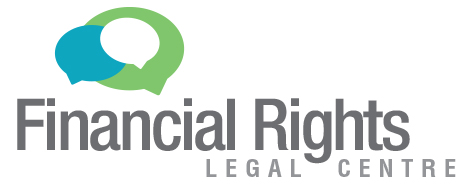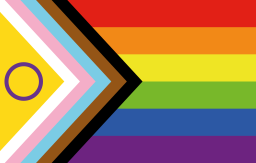This fact sheet is for information only. You should get professional advice about your personal situation.
Main ideas
• Direct debit can be a convenient way to pay regular bills.
• You need to keep track of direct debits so that your account is not overdrawn.
• You can cancel direct debit payments if you need to.
• Financial counsellors can help you manage your direct debits. Their services are free.
In this fact sheet:
The pros and cons of direct debit
• The advantages of direct debit
• The disadvantages of direct debitCancelling a direct debit
• What if the direct debit is not cancelled
Understanding direct debits
A direct debit is when you allow a merchant (a business supplying goods or services to you) to debit (take money from) your account.
Direct debits usually happen on the same day each month, or weekly, or fortnightly. It depends on what you have agreed with the merchant.
The direct debit may be either:
- Fixed – for example, $100 per month to repay your personal loan.
- Variable – for example, your electricity bill each quarter.
To set up a direct debit
- You agree to pay by direct debit for goods or services. For example, your electricity bills or gym membership.
- You sign an agreement called a Direct Debit Request (DDR). This agreement tells your bank (or financial institution) to deduct money from your account to pay the merchant. The merchant cannot deduct money from your account without a properly authorised Direct Debit Request. The agreement will say when the money will be taken and how much. It will also say what happens if the direct debit fails.
- Your bank takes money from your account and pays it to the merchant. They do this until you cancel the direct debit.
The pros and cons of direct debit
Whether or not you choose to pay by direct debit depends on your situation.
The advantages of direct debit
- Bills are automatically paid by the due date.
- You do not have to worry about remembering to pay manually.
The disadvantages of direct debit
- You can easily get into financial trouble if you have lots of direct debits. Make sure you can afford to pay before you buy using direct debit.
- If you direct debit from a credit card account, you could pay interest on top of the direct debit. Check for extra fees too.
- You must watch your account balance or credit limit to make sure there is enough money to cover every direct debit when it comes. This is difficult when the amount varies (for example, your electricity bill). If you have trouble keeping track of your account, then use other payment options.
- Extra fees and charges can cost a lot. If there is not enough money in your account for the direct debit, you may be charged a dishonour fee by the bank and perhaps another dishonour fee by the merchant. The bank could also choose to process the direct debit anyway and overdraw your account. Then the bank may charge you a fee, and interest, for overdrawing your account.
- You need to check your bank account to make sure the direct debit was correctly paid. The sooner you notice and raise a problem, the better chance you have of fixing it.
- Services may be cancelled if you don’t notice a direct debit has stopped (for example, missed insurance premiums may mean your insurance cover stops).
- If the card expires, you need to update your card details with the merchant.
- It can be difficult to dispute a payment after you have paid for the service by direct debit.
- It can be difficult to stop or delay direct debit payments. You generally need to give a few days’ notice to process any changes.
Cancelling a direct debit
You should cancel your direct debit if:
- you have cancelled your agreement with the merchant
- you wish to change your payment method
- you have a dispute about the amount of a bill, or the quality of the goods or service. After cancelling the direct debit, pay any amount you agree you owe by some other method.
If you stop the direct debit, you may still owe money to the merchant for goods and services they have provided. Pay by a different payment method or get advice if you have a dispute.
If your contract with the merchant says that you must pay by direct debit, get legal advice before stopping the direct debit.
Bank or transaction account
You can cancel a direct debit from your bank or transaction account whenever you want. You do not need to give the bank or the merchant a reason. It is a good idea to write to the merchant to let them know as well.
Credit card account, or VISA/Mastercard debit account
You need to write to both your bank and the merchant at the same time. If you cannot find the merchant, (sometimes a problem with goods or services ordered over the phone or Internet), just write to the bank.
When writing to your bank, address the letter to the branch where you opened your account. Say that you want to cancel the direct debit. See our sample letter: To Bank Cancelling a Direct Debit Authority. Keep a copy of the letter to show you cancelled the direct debit.
Phone the bank a few days later to check that the direct debit has been cancelled.
When writing to the merchant, say you have cancelled the direct debit. See our sample letter: To Business Cancelling a Direct Debit Authority. Keep a copy of the letter.
What if the direct debit is not cancelled
- Complain to the bank or finance company immediately. If the debit is made after you cancelled it, it is an unauthorised debit. Ask for it to be paid back into your account. Also ask for any fees or interest to be paid back. You can find your bank’s complaints department contact details on the Australian Financial Complaints Authority (AFCA) website.
- If the bank or finance company does not fix the problem within 30 days, complain to the AFCA (Phone: 1800 931 678, ). See our fact sheet: Financial Complaints to AFCA. Include your letter of complaint to the bank and any response you have received.
How to get a list of all your direct debits
Get a list of all your direct debits before switching to another bank. Ask your bank for lists of:
- direct debit arrangements
- direct credit arrangements
- periodical payments.
Within 5 business days, your bank should give you lists covering the previous 13 months.
Your bank must also tell you how to find your own internet ‘pay anyone’ payments.
Need more help?
Visit our Useful Links page for a list of other resources and organisations.
Last updated: October 2022

